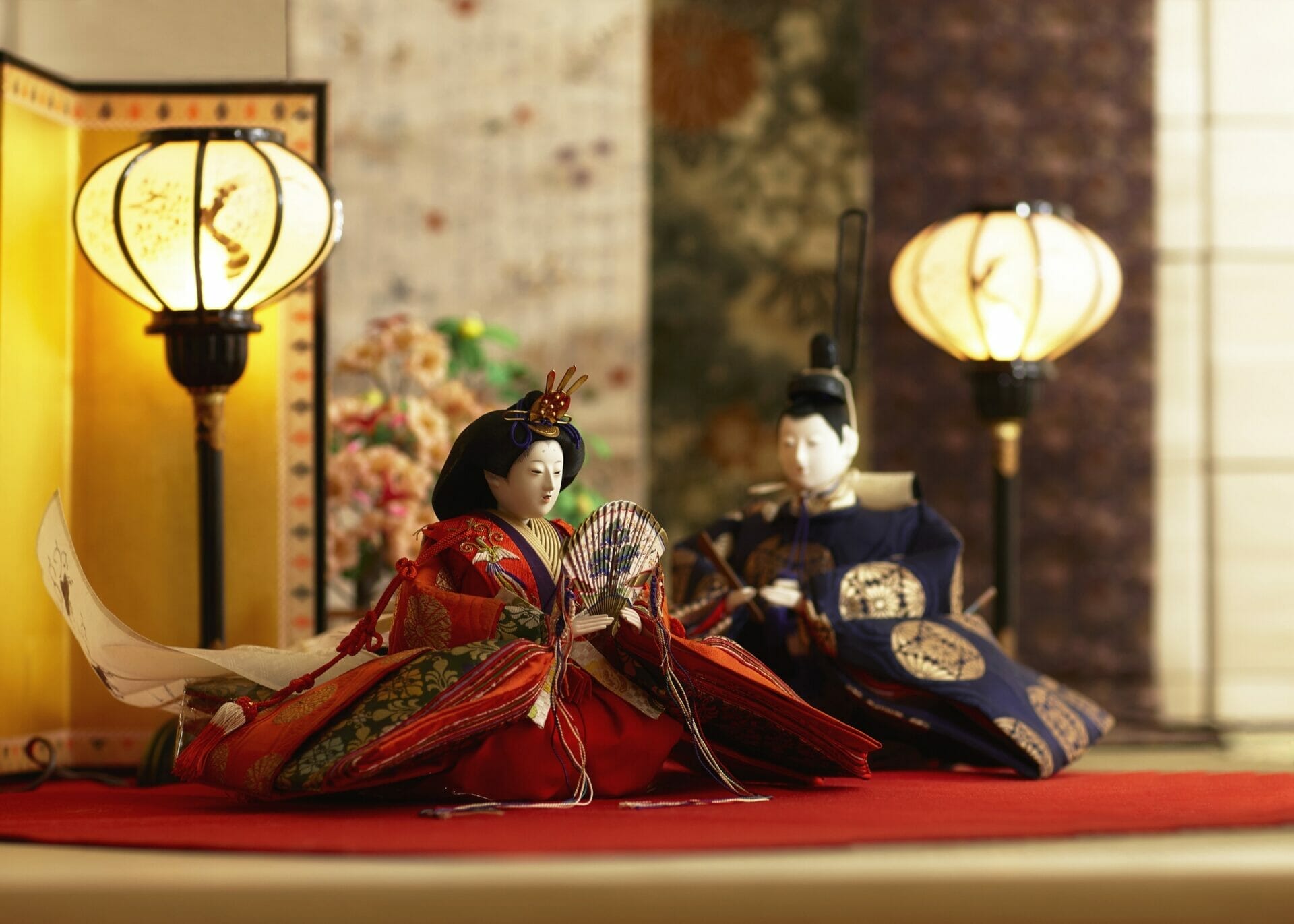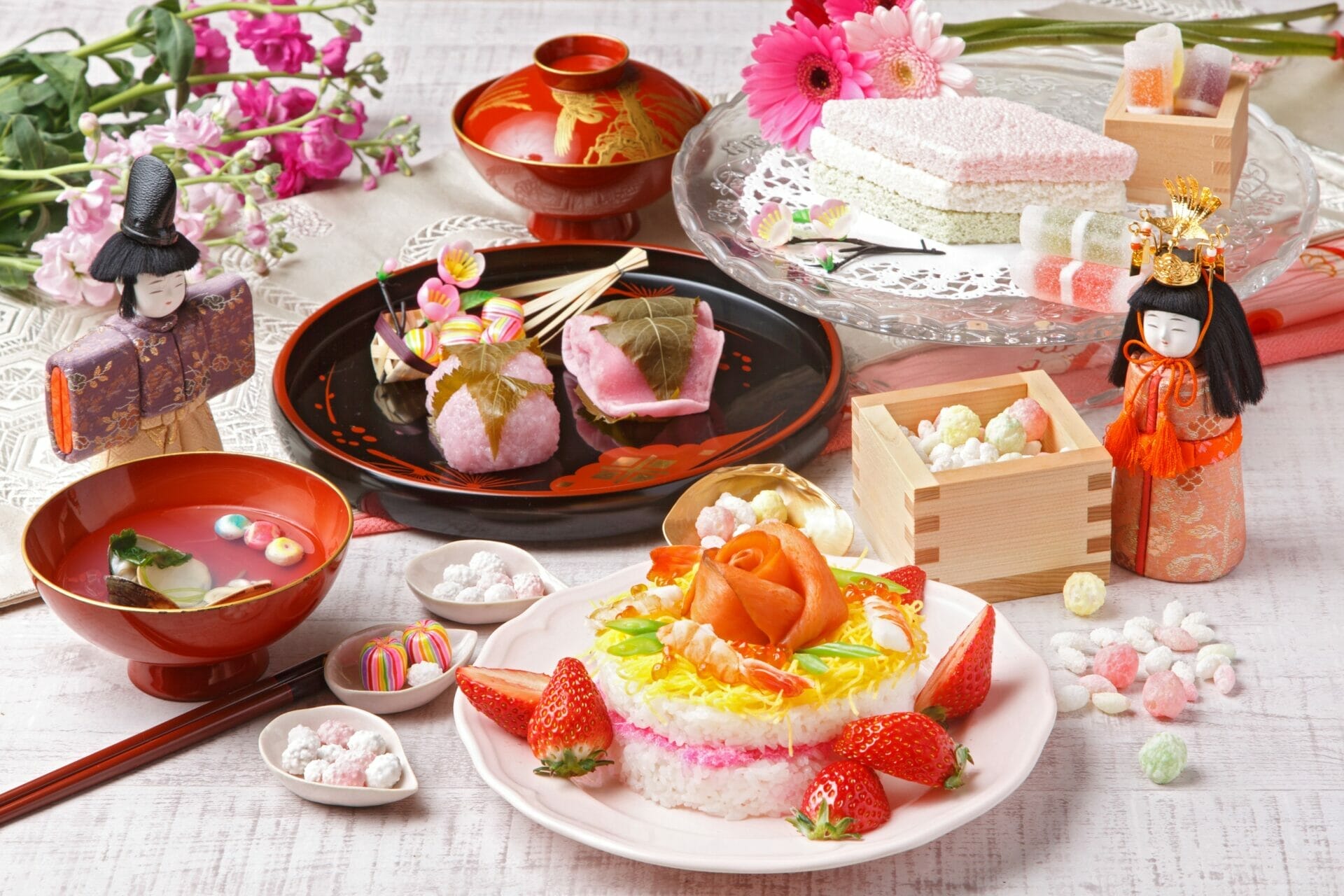3月3日は、「ひな祭り」です。女の子たちに誕生を祝い、またこれからの幸せを願うお祭りです。
もとは、水辺で身体を清める風習で、代わりに紙人形を使うようになり、その人形が「ひな人形」として現在のものに至ったと言われています。
そのひな祭りについて、ケイトとマリが話をしています。
★会話★
Kate and Mari are talking about the Girls’ Day.
Mari: Do you know what day it is the day after tomorrow?
Kate: Well, it’s March 3rd.
Is that a special day?
Mari: Yes. That is called Girls’ Day.
Kate: What is that?
Mari: That’s the day we celebrate the birth of girls and wish them happiness.
We set up dolls for that festival.
Kate: Have you set them up at your house?
Mari: Yes, we have.
And we have to pack them up by the middle of March.
Kate: Why don’t you leave them unpacked for long?
Mari: It is said the lady of that family will marry late if we don’t pack them up soon.
Kate: That’s funny.
Mari: Yes, but my mother believes it.
★ワンポイント★
Girls’ Day:「ひな祭り」
what day:「何の日」
the day after tomorrow:「明後日」
special day:「特別な日」
be called~:「~と呼ばれている」
celebrate:「祝う」
wish~ happiness:「~の幸せを願う」
set up:「セットする」「配置する」
festival:「祭り」
by~:「~までに」
middle of March:「3月中旬」
unpacked:「包みから出した」「パックされていない」
for long:「長い間」
It is said~:「~と言われている」
marry late:「遅く結婚する」
believe:「信じる」

★和訳★
Kate and Mari are talking about the Girls’ Day.
(ケイトとマリがひな祭りについて話をしています。)
Mari: Do you know what day it is the day after tomorrow?
(明後日は何の日か知っている?)
Kate: Well, it’s March 3rd.(ええと、3月3日ね。)
Is that a special day?(特別の日なの?)
Mari: Yes. That is called Girls’ Day.(そうよ。ひな祭りと呼ばれているの。)
Kate: What is that?(それって何?)
Mari: That’s the day we celebrate the birth of girls and wish them happiness.
(女の子たちの誕生を祝って、彼女たちの幸せを願う日よ。)
We set up dolls for that festival.
(そのお祭りに、お人形を飾り付けるの。)
Kate: Have you set them up at your house?
(あなたの家でも飾ってあるの?)
Mari: Yes, we have.(ええ、飾ってあるわ。)
And we have to pack them up by the middle of March.
(それから、3月中旬までには仕舞わなければならないの。)
Kate: Why don’t you leave them unpacked for long?
(なぜ、長い間そのまま出しておかないの?)
Mari: It is said the lady of that family will marry late if we don’t pack them up soon.
(もし、人形をすぐに仕舞わなければ、その家の女性は婚期が遅れると言われているわ。)
Kate: That’s funny.(おかしな話ね。)
Mari: Yes, but my mother believes it.
(ええ、でも私の母はそれを信じているわ。)
[s_ad]



